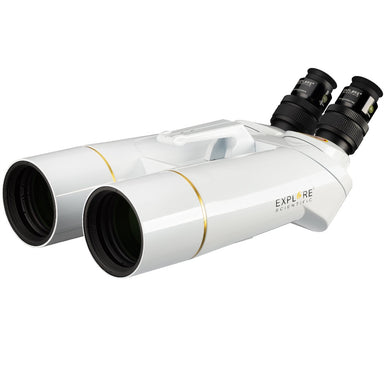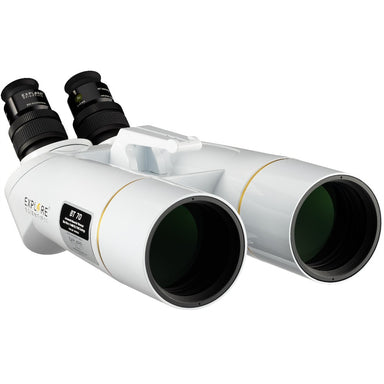

DESCRIPTION With the Explore Scientific BT-70 SF Large Binoculars, you'll unlock a new dimension of observing, whether you're gazing at the stars ...
View full detailsThere's something truly magical about exploring the cosmos with just a pair of handheld astronomy binoculars. It's simple, it's immediate, and it's an experience like no other. Astronomy Binoculars aren't just for the experts - it's for anyone who's ever looked up at the night sky and wondered what's out there. But what should you look for in astronomy binoculars?
To ensure you enjoy stunning views of the cosmos and unforgettable stargazing experiences, we've curated a selection of the best binoculars, and a list with all the relevant factors for you to consider when choosing the best astronomy binocular. Let's break it down:
Now, grab yourself one of the best astronomy binoculars in this collection, and you'll be ready to see the cosmos with exceptional contrast and sharpness.

 Save $-1,599.99
Save $-1,599.99
DESCRIPTION With the Explore Scientific BT-70 SF Large Binoculars, you'll unlock a new dimension of observing, whether you're gazing at the stars ...
View full details
